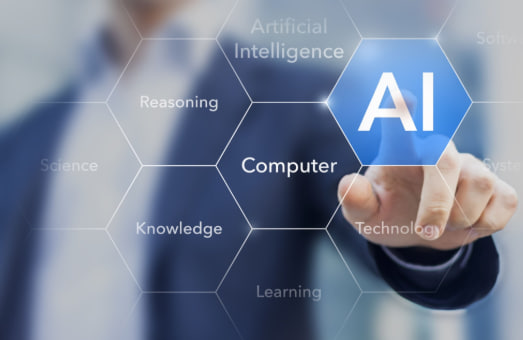Artificial Intelligence: The Driving Force behind the Government Consulting Revolution
Have you ever considered how emerging technologies could transform government operations? Today, governments worldwide face increasingly complex challenges.
According to Deloitte’s 2023 Government Outlook Survey, nearly 85% of respondents believe that leveraging cutting-edge technologies—such as artificial intelligence—has become essential to improving performance and efficiency. Government consulting has emerged as a strategic response to these dynamics.
If you’re interested in understanding how this transformative technology can redefine public-sector performance, keep reading to explore the immense potential that AI brings to the field of government consulting.
The rise of the public sector consulting market
The public sector consulting market is growing steadily, driven by the need for specialized expertise in digital transformation, efficiency enhancement, and data-driven policymaking. This trend reflects the increasing strategic role of external expertise in supporting government initiatives.
The government consulting industry is expanding rapidly on a global scale. This surge reflects the growing demand for specialized external expertise, as governments strive to navigate complex transitions, overcome multifaceted challenges, and achieve their strategic goals more effectively.
Key drivers behind the growing demand for specialized government consulting
1.Growing need for expertise in digital transformation, sustainability, and change management
Governments today require deep, domain-specific knowledge in areas that were once peripheral but have now become critical. This includes:
- A holistic digital transformation of public services.
- Integrating sustainability principles into policies and large-scale projects.
- Managing the organizational overhaul that accompanies these major transformations.
To bridge knowledge gaps and ensure the successful execution of complex initiatives, governments are turning to external experts.
This growing reliance on specialized consulting reflects the urgency of adapting to an increasingly complex administrative and technological landscape—an observation supported by reports from McKinsey and the Boston Consulting Group (BCG) on the future of digital government and AI in the public sector.
2. Pressure to deliver high-quality public services within tight budgets
Governments navigate mounting pressure to control spending while maintaining high-quality services for citizens and residents—often under significant budget constraints. These limitations demand innovative solutions that help:
- Optimize spending.
- Improve operational efficiency.
- Enhance the effectiveness of government programs.
Consultants play a vital role here by:
- Analyzing processes to uncover inefficiencies.
- Identifying waste drivers.
- Providing actionable recommendations that enable governments to achieve ambitious goals within financial limits.
This trend aligns with Gartner’s research on the top priorities of public-sector CIOs, emphasizing efficiency and strategic resource allocation.
3. The need for innovation to address complex global challenges
Present-day challenges go beyond national borders, reflecting their intricate, interconnected, and global nature. Challenges such as:
- Climate change.
- Preparedness for future pandemics.
- Economic crises and their ripple effects.
Governments increasingly turn to consulting firms to:
- Bring in fresh external perspectives.
- Implement innovative methodologies.
- Leverage global best practices to design and implement effective solutions.
The goal is to develop flexible, adaptive policies and solutions that can effectively address unprecedented challenges, enhancing governments’ capacity to remain resilient and continuously evolve. This approach aligns with insights from McKinsey’s report, "Unleashing the Potential of AI in the Public Sector."

The role of AI and data in enhancing policies and programs
AI and data analytics empower governments to analyze demographic patterns, forecast future needs, and accurately evaluate the outcomes of public policies—enabling public-sector leaders to design more effective programs.
Integrating AI and data analytics into the public sector can significantly enhance both efficiency and overall performance. Here are key applications driving this change within this sector:
1. Big data analysis: deriving insights to solve complex problems
AI enables governments to extract insights from massive datasets, such as:
- Public service records.
- Infrastructure usage data.
- Citizen interactions.
This data-driven insight enables policymakers to gain a deeper understanding of intricate challenges and develop targeted solutions that address genuine public needs.
Example: Singapore leveraged AI to analyze traffic data, improving flow and reducing congestion—resulting in a more efficient and responsive urban transportation system.
2. Predictive modeling: harnessing AI to forecast policy outcomes before implementation
AI is increasingly leveraged in the public sector to develop predictive models that enable governments to simulate the potential outcomes of various policy options before implementing them. This helps test programs proactively, identify risks and opportunities, and reduce the cost of trial and error.
Example: In the United Kingdom, AI-powered predictive models were used to forecast pandemic dynamics such as COVID-19, enabling timely and data-driven decisions on:
- Lockdown measures.
- Vaccine distribution.
- Healthcare resource management.
3. Automating government operations: Enhancing efficiency and reducing human error
AI contributes to automating many repetitive tasks, improving efficiency and minimizing human error. This includes:
- Processing government applications.
- Responding to citizen inquiries.
- Managing official documentation.
Example: The United Arab Emirates has adopted AI systems and chatbots across multiple government entities, such as the Dubai Land Department, to automate and accelerate customer service, saving employees time and enabling them to focus on higher-value tasks.
4. Continuous program evaluation: Using data and AI for real-time monitoring and adjustment
AI and data analytics provide the following capabilities:
- Continuously monitor the performance of programs and policies.
- Make real-time adjustments to maximize impact.
Organizations like the United Nations encourage integrating big data and AI into program evaluation to achieve Sustainable Development Goals (SDGs), highlighting the importance of a data-driven approach to modern governance.
Key trends in policy development and program evaluation
Modern trends emphasize achieving measurable outcomes, enhancing citizen engagement, and strengthening government workforce capabilities.
1. Results-Oriented Initiatives
Designing policies and programs with measurable and trackable objectives ensures that initiatives deliver tangible and sustainable results. The Center for Governance and Public Innovation highlights the critical role of results-based evaluation in enhancing government performance.
2. Citizen Engagement
Integrating citizen input into policy design and evaluation ensures:
- Policies address tangible community priorities.
- Policies achieve the level of buy-in and support needed to ensure long-term success.
The Harvard Kennedy School - Ash Center highlights citizen engagement as a cornerstone of democratic governance and effective public policy.
3. Strategic intervention
This approach pinpoints pivotal leverage points where minimal resources can yield maximum impact. It involves:
- Analyzing root causes of problems.
- Developing targeted solutions that achieve maximum impact with minimal resources.
The Brookings Institution advocates this approach in its study on governmental spending efficiency.
4. Workforce development
Workforce development ensures employees can:
- Implement new policies effectively.
- Acquire the required skills and knowledge.
- Adapt to evolving requirements.
The Harvard Kennedy School's Ash Center emphasizes workforce development as a crucial factor in reform success.

Challenges and opportunities for public sector consultants
While consultants encounter challenges such as bureaucratic intricacies, reluctance to change, and cybersecurity risks, they also benefit from opportunities to drive digital transformation and enhance governmental operations.
Challenges
- Complex bureaucratic structures: Fragmented government entities slow projects and hinder change. (Christian Rauch, BCG)
- Resistance to change: Rigid adherence to outdated practices impedes progress and stifles innovation. (Deloitte)
- Cybersecurity and data protection: Handling sensitive government data requires robust security and compliance. (PwC 2024)
Opportunities
1. Growing demand for expertise in AI, data analytics, and digital transformation
McKinsey's report on digital governance highlights the rising demand for advanced digital capabilities and AI expertise in the public sector, creating fresh opportunities for consultants.
2. Long-term partnerships
Large-scale government projects secure long-term relationships and contracts, ensuring both stability and recurring work opportunities for consultants. Many seasoned consultants at Accenture emphasize that success in the public sector hinges on fostering trust and consistently delivering reliable results.
3. Creating social and economic impact
Projects can improve citizens’ lives and community well-being, offering consultants the chance to generate shared value. Many social consulting experts, such as Professor Michael Porter of Harvard Business School, highlight this as a major intangible benefit, underscoring the pivotal role consultants can play in generating shared value for communities and governments.

Frequently Asked Questions (FAQs)
1. What are the Key Skills required for Public Sector Consultants?
- Digital transformation and AI: knowledge of cutting-edge technologies for optimizing public sector services.
- Data analysis: data collection and analysis to extract actionable insights.
- Understanding bureaucracy: navigating complex organizational structures and decision-making processes.
- Flexibility and adaptability: adaptability to unexpected changes and challenges.
- Communication and persuasion: fostering robust connections while articulating solutions effectively.
2. How can governments select the best consulting firms for their projects?
- Specialized expertise: a proven track record in similar public sector projects.
- Demonstrated results: reviewing case studies and previous successes.
- Project team: evaluating the skills and experience of the team assigned to the project.
- Methodology: ensuring the proposed approach aligns with government objectives and the public sector context.
- Cost transparency: precise estimation while considering the value delivered.
3. Can AI Replace Human Consultants?
No, AI enhances human capabilities by automating tasks and analyzing data, but humans provide:
- Intuition and contextual understanding.
- Creativity and complex problem-solving.
- Relationship-building, trust, and change leadership.
4. What are the ethical challenges of AI in Public Policy?
- Bias in algorithms: risk of reflecting biases present in training data.
- Privacy and data security: the need for robust safeguards to protect personal data.
- Accountability and transparency: difficulty in assigning responsibility and the opacity of some algorithms.
- Potential job displacement: the potential displacement of specific jobs due to automation.
5. How can we assess the effectiveness of government consulting projects?
- Achievement of objectives: to what extent the project meets its original goals.
- Stakeholder satisfaction: Assessing the satisfaction of employees, citizens, and government entities.
- Policy and process impact: Whether the consulting effort led to positive and lasting changes.
- Return on investment (ROI): Do the benefits outweigh the financial costs of the projects?
- Sustainability: Ensuring long-term continuity and effectiveness of the solutions.
Conclusion
AI is transforming government consulting by enabling advanced data analysis, predictive modeling, and process automation, leading to more innovative policies and more efficient public services. With growing demand for specialized expertise and innovation, consultants are becoming strategic partners in governments’ digital transformation journeys.
Are you ready to explore how this partnership can enhance public sector performance in your country? Share your thoughts or questions in the comments below, and feel free to share this article to spread the insights!
This article was prepared by coach Majid bin Afif, an MMB certified coach
مساحة اعلانية
أحدث المقالات
ابق على اطلاع بآخر المستجدات
کن على اطلاع بآخر المقالات والمصادر والدورات القادمة









